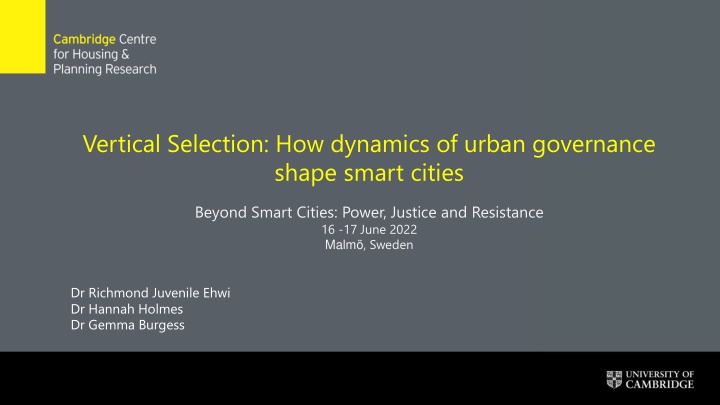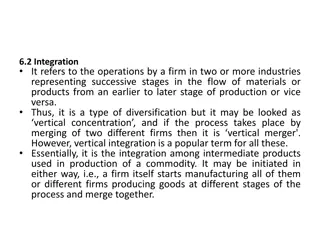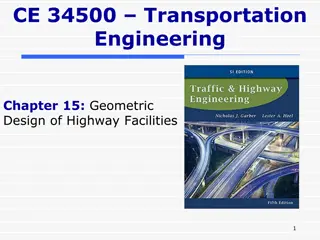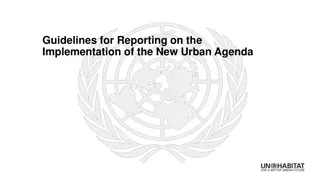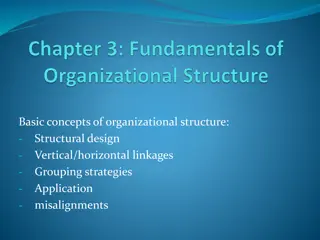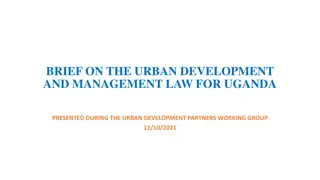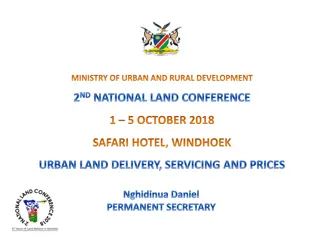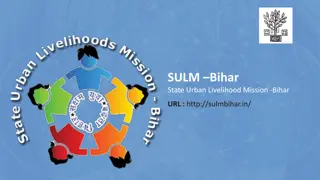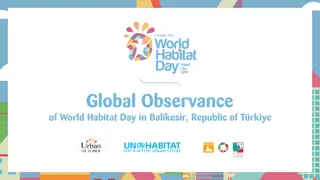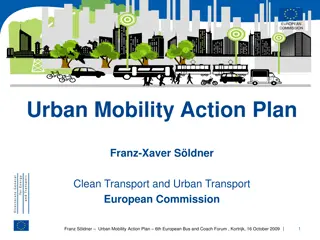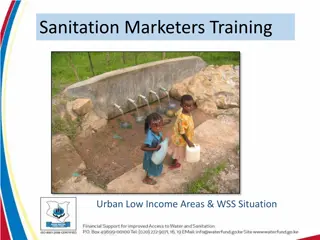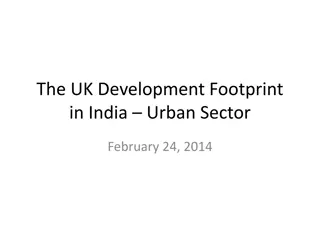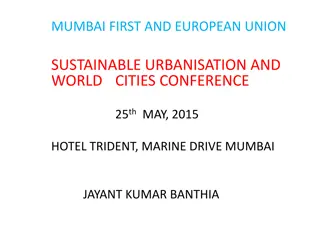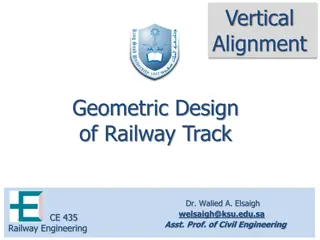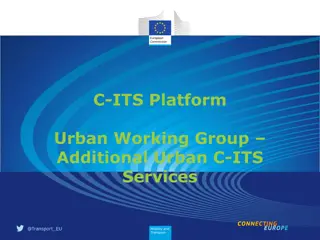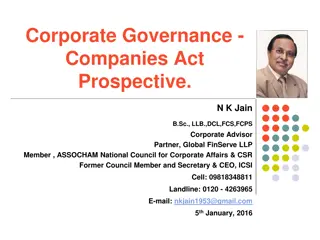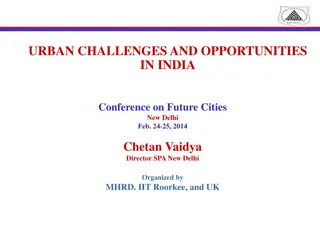Vertical Selection: How dynamics of urban governance
The conference "Beyond Smart Cities: Power, Justice, and Resistance" in Malmö, Sweden delves into how urban governance dynamics influence smart city development. Experts like Dr. Richmond Juvenile Ehwi, Dr. Hannah Holmes, and Dr. Gemma Burgess will share insights on this critical intersection.
Uploaded on Mar 11, 2025 | 0 Views
Download Presentation

Please find below an Image/Link to download the presentation.
The content on the website is provided AS IS for your information and personal use only. It may not be sold, licensed, or shared on other websites without obtaining consent from the author.If you encounter any issues during the download, it is possible that the publisher has removed the file from their server.
You are allowed to download the files provided on this website for personal or commercial use, subject to the condition that they are used lawfully. All files are the property of their respective owners.
The content on the website is provided AS IS for your information and personal use only. It may not be sold, licensed, or shared on other websites without obtaining consent from the author.
E N D
Presentation Transcript
Vertical Selection: How dynamics of urban governance shape smart cities Beyond Smart Cities: Power, Justice and Resistance 16 -17 June 2022 Malm , Sweden Dr Richmond Juvenile Ehwi Dr Hannah Holmes Dr Gemma Burgess
Outline Research motivation Research methodology Findings Conclusion and future research directions
Research motivation Smart City Demonstrators in UK Cities (Future Cities Catapult, 2016) Exeter City services & Open Data Platforms (Smart Parking, Smart street lighting, Smart waste management, Smart ticketing) Cardiff Liverpool Smart Utility & Energy (Smart meters, Smart grids, dynamic marketplace, energy as a service) Reading Sheffield Belfast Smart Healthcare (telecare, telemedicine, assisted living technologies) Newcastle Edingburgh Connected & Autonomous Vehicles/EVs (Driver assistance, conditional automation, high automation) Aberdeen Oxford Cambridge Last Mile Supply Chain and LogisticsSmart (Greeen delivery vehicles, advanced algorithms and analytics, delivery drone and robots) Peterborough Nottingham Next Genration Connectivity (IoT, early 5G & radio frequency mesh networks) Glasgow Milton Keynes Leeds *Citizen Engagement//Mobility Apps (Citizen workshops, Hackathons, Living Labs etc) Birmingham Manchester Hybrid Projects London Bristol 0 2 4 6 8 10 12 14
Research questions How are city problems identified and framed, and by who? How do smart city verticals emerge, and what do the different emergence pathways tell us about urban governance?
Methodology Research Design: Qualitative research with multiple case studies Preliminary data gathering phase: Review of secondary literature to map smart city verticals across UK cities (Huawei 2017 Smart City Index & Future City Catapult Demonstrator Projects 2016) Review of website information on selected UK smart cities Shortlisting of UK cities with ongoing smart city projects straddling multiple verticals for interviews Empirical data gathering phase: Case Study of 7 UK cities Oxford, Milton Keynes, Bristol, Nottingham, Birmingham, Leeds and Newcastle Online semi-structured interviews with 16 participants in total (10 council officers; 4 elected councillors; 1 innovation consultant; 1 academic)
Case Study Information
City problems and framing Poverty-related Transport is the top problem it always comes up. (Oxford) Actual city problems Transportation-related City problem-framing Housing-related What the smart city is trying to do is to get ahead of the curve on some of these challenges, not necessarily challenges of today. (Milton Keynes) Potential city problems Connectivity-related Health-related
Emergence & justification of smart city verticals Existing city services Pragmatism Broader agendas and events Entrepreneurialism
Smart Waste Collection: [We re]giving more data back to residents on bin collections, and it's also making sure that bins are emptied when they need to be empty, therefore reducing complaints. (Newcastle) Existing City Services Smart Adult Healthcare: [It] allows you to get access to your health records now so that these are more transportable and transferable if you go to a different health setting, it's a lot easier for your data to be available to someone who's making a decision. (Leeds)
Existing knowledge ecosystem: We realised that a lot of projects on mobility were already happening across the university and the city, so we started mapping this ecosystem and having discussions to bring everything together That s how the programme began. (Oxford) Pragmatism Constraints from limited resources: If there were 10 of me, 10 smart cities officers within the city council, then we would look at many different strands, many different opportunities. We can't cover all the different projects that there are . [Our smart city team] is literally just me. (Nottingham)
Where smart governance sits: My role sits in Economic Development. So anything I do, I'm constantly checked and pulled back, and it's like, have you considered x, y, z local business in this? Please get them involved . (Nottingham) Entrepreneurialism Framing smart governance as apolitical: What role [elected politicians] will play in the governance is yet to be determined because what we don't want is [for the smart city to be] seen as a political issue. We want this to be a city issue, where city partners feel that they're not being dictated to by the city council. (Birmingham)
Ambition and Climate Change: We re aiming to be carbon neutral by 2028. So we're the first of the major cities to be the most ambitious in terms of its timescale. (Nottingham) Broader agendas and events Responding to national policy changes: A lot of our tenants weren't online, didn't have the right skills, and the Universal Credit Scheme was online only because the government was shifting everything to online This is where the Digital Inclusion team really started to expand. (Leeds)
How city problems are framed has implications for shaping which issues become prioritised. The selection of smart city verticals is highly political and does not stand separately from the long- established, complex processes of more general urban governance. Further research into how investments into smart city initiatives compare with other city service problems that are not included in smart city initiatives is required. Conclusions
Acknowledgements This research forms part of the Centre for Digital Built Britain s (CDBB) work at the University of Cambridge. It was enabled by the Construction Innovation Hub, of which CDBB is a core partner, and funded by UK Research and Innovation (UKRI) through the Industrial Strategy Challenge Fund (ISCF).
https://www.cchpr.landecon.cam.ac.uk/ rje52@cam.ac.uk hh529@cam.ac.uk
